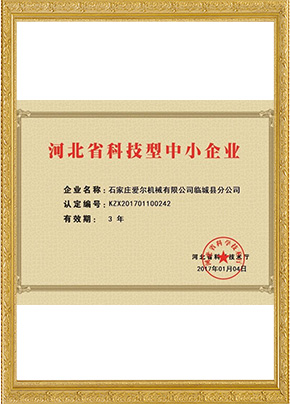Nov . 29, 2024 19:03 Back to list
Supplier of Components for Slurry Pumps and Related Equipment
Understanding Slurry Pump Components and Their Suppliers
Slurry pumps play a crucial role in various industries, including mining, construction, and wastewater treatment. These pumps are specifically designed to handle a mixture of solids and liquids, known as slurry. The performance and longevity of a slurry pump are largely influenced by its components, which need to endure challenging conditions such as abrasive materials, high flow rates, and varying temperatures. In this article, we will explore the essential components of slurry pumps and the suppliers that are integral to this industry.
Key Components of Slurry Pumps
1. Impeller The impeller is arguably one of the most critical components of a slurry pump. It is responsible for converting mechanical energy into hydraulic energy, thereby creating flow. Impellers can be constructed from various materials, including rubber, cast iron, or stainless steel, depending on the specific application and type of slurry being pumped. For abrasive slurries, hard metal impellers are often preferred for their durability.
2. Pump Casing The pump casing serves to contain the entire pumping mechanism and directs the flow of slurry from the impeller to the discharge. The design of the casing impacts both the efficiency and performance of the pump. It must be robust enough to withstand high pressures and temperatures. Many suppliers provide pump casings made from corrosion-resistant materials to prolong the life of the pump.
3. Suction and Discharge Flanges These flanges allow for the connection of the pump to the piping system. The dimensions and specifications must match the system requirements to ensure there is no leakage and that the pump operates efficiently. Proper sealing is vital to prevent wear and tear on the components.
4. Wear Liners Given that slurry pumps are often exposed to abrasive materials, wear liners are vital for protecting key components from erosion. These liners can be made of rubber or hard metal and can be replaced as they deteriorate, making them a cost-effective solution in maintaining pump efficiency over time.
5. Seals Seals are essential to prevent leakage of the slurry as well as to protect the internal components of the pump from external contamination. Mechanical seals are commonly used in slurry pumps, and depending on the conditions, various types, such as double or single seals, may be employed.
6. Bearings Bearings support the rotating shaft of the pump and ensure smooth operation. They must be able to handle heavy loads and, in many cases, are designed to be lubricated for extended service life.
Choosing the Right Suppliers
slurry pump components supplier

Selecting a reputable supplier for slurry pump components is critical for ensuring high-quality performance and reliability. Here are some aspects to consider when choosing a supplier
1. Experience and Expertise Look for suppliers with extensive experience and technical expertise in slurry pump systems. Their knowledge can guide you in selecting the right components for your specific requirements.
2. Quality of Materials The longevity of slurry pump components relies on the materials used. Make sure your supplier sources high-quality materials that can withstand harsh operational conditions.
3. Customization Options Industries that rely on slurry pumps often have unique requirements. A capable supplier should offer customized solutions that cater to your specifications.
4. Product Range A supplier that offers a broad range of components can ease procurement processes, ensuring that you have access to everything needed for complete pump assembly and maintenance.
5. After-Sales Support Reliable after-sales support is vital. Ensure that the supplier provides comprehensive support services, including installation assistance and maintenance advice.
6. Reputation and Reviews Research the supplier’s reputation in the industry by reviewing testimonials and case studies. This research can provide insight into their reliability and customer service levels.
Conclusion
Understanding the components of slurry pumps and selecting the right suppliers is essential for the efficient operation of systems handling slurries. Whether in mining, construction, or wastewater management, the performance and durability of slurry pumps hinge significantly on the quality of their components. By carefully considering suppliers based on their expertise, material quality, and support, industries can ensure that they maintain efficient and reliable slurry pumping operations. Investing in high-quality components and reputable suppliers will yield long-term benefits, minimizing downtime and maintaining productivity.
-
Top Submersible Pump Companies High Quality Manufacturers & Suppliers in China
NewsJul.08,2025
-
High Quality Seal for 5 Inch Dredge Pump Reliable China Manufacturer & Supplier
NewsJul.08,2025
-
High-Efficiency Slurry Sand Pump from Leading China Manufacturer – Durable & Reliable Solutions
NewsJul.07,2025
-
High-Quality Slurry Pump Made in China Durable Steel Mill Slurry Pump & Parts
NewsJul.07,2025
-
High Quality Excavator Dredge Pump Manufacturer & Suppliers from China – Reliable, Durable, Efficient Solutions
NewsJul.07,2025
-
Wholesale Slurry Pump Closed Impeller Supplier High Efficiency China Slurry Pump Closed Impeller
NewsJul.06,2025
